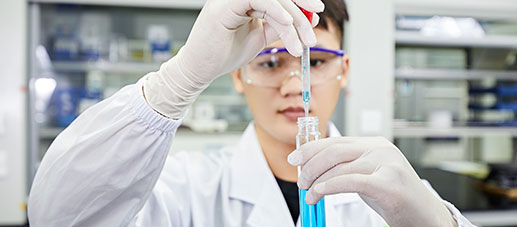- Home
- About CTI
- Our Services
- Investor Relations
- CTI Mall
- Resource Center
- Reports Validation
- Join Us
-
 Overview
Overview
Centre Testing International Group Co., Ltd. (CTI) is a market leader in testing, inspection, certification, calibration, audit, training & technical services; building trust between governments, enterprises, and consumers.
-
 Sustainability
SustainabilitySustainability is deeply rooted in CTI’s business model, by delivering science-based solutions and verification services, to increase transparency and traceability throughout the global value chain. CTI is a proponent of carbon neutrality and sustainable development.
-
 Our service
Our serviceCentre Testing International Co., Ltd. (CTI) is the pioneer and leader in the TIC Industry which provides one-stop solutions on testing, inspection, certification, calibration, audit, training & technical services.
-
By Industry
Our service capabilties cover the upstream and downstream of the supply chain including textile and apparel,toys,electronic appliances,medical health,food...andother industries.
-
 Environment
Environment
-
 Raw Material & Fuel Chemicals
Raw Material & Fuel Chemicals
-
 Textiles, Apparel, Footwear & Accessories
Textiles, Apparel, Footwear & Accessories
-
 Food & Agricultural Products
Food & Agricultural Products
-
 Cosmetics, Personal Care & Household Chemicals
Cosmetics, Personal Care & Household Chemicals
-
 Building Materials&Construction Engineering
Building Materials&Construction Engineering
-
 Electronic & Electrical Appliances
Electronic & Electrical Appliances
-
 Toys, Furniture & Home Decoration
Toys, Furniture & Home Decoration
-
 Industrial Equipment & Manufacturing
Industrial Equipment & Manufacturing
-
 Rail & Aviation
Rail & Aviation
-
 Automotive & Spare Parts
Automotive & Spare Parts
-
 Pharma and Medical Services
Pharma and Medical Services
-
 Maritime Vessel Compliance Testing
Maritime Vessel Compliance Testing
 By Industry
By IndustryOur service capabilties cover the upstream and downstream of the supply chain including textile and apparel,toys,electronic appliances,medical health,food...andother industries.
-
-
 Specialty
SpecialtyComprehensively guarantee quality and safety, promote compliance and innovation, demonstrate brand competitiveness, and achieve higher quality, healthier, safer, and greener sustainable development.
-
 Management
ManagementWe have established a clear governance structure in accordance with listing requirements and national regulations and policies to deal with internal and external challenges and achieve sustainable development.
-
 Information DisclosureWe are committed to establishing normal and effective two-way communication with shareholders and investors. We have established a complete information disclosure mechanism to convey information to shareholders in a timely manner.
Information DisclosureWe are committed to establishing normal and effective two-way communication with shareholders and investors. We have established a complete information disclosure mechanism to convey information to shareholders in a timely manner.
-
 Talents Policy
Talents PolicyEnsuring the basic rights and benefits of employees;
Providing professional skills training to promote employees’ growth;
Carrying out various kinds of activities to balance employees’ work and life.
-
 RecruitmentWelcome to join CTI family! We are providing a platform for you to show your talents and achieve your career aspiration.
RecruitmentWelcome to join CTI family! We are providing a platform for you to show your talents and achieve your career aspiration.
- Resource Center
- Application Forms
- Bulletin
- Training Center
- CTI Academy
- Reports Validation

New Zealand announced the ban of importing asbestos-containing products
June 15,2016, New Zealand Environment Minister Dr Nick Smith announced the importation of asbestos-containing products is to be banned. The importation of raw asbestos is already banned but we are now extending this prohibition to items which contain asbestos, with a few exceptions.
An inventory released by the Ministry for the Environment in 2014 shows asbestos is no longer imported for use in buildings or where members of the public are likely to be exposed to it. However, it is still imported for a limited number of specialist products, such as gaskets, seals and brake linings.
The Government recognises there are a few specialised uses for which there is no practical alternative. For that reason, there is scope to be granted a permit to import – but only in very select circumstances , such as older machinery, and a small number of vintage plane or ship restorers. In addition, an importer would have to be able to show that any risk of asbestos exposure can be safely managed.
Regulatory Requirements
As a carcinogen, asbestos will cause harm to human body and environment, in order to control it there are more than forty countries and regions in the world to specify the relevant ban on asbestos, mainly include:
| Regulation | Regulatory requirements |
| REACH Annex XVII | Banned asbestos intentionally added ,banned the use and sold of asbestos-containing products. |
| SOLAS | New materials containing asbestos is prohibited to install in ships from Jan 1,2011 |
| GB12676-1999 | Asbestos can not be used in brake lining from Oct 1,2013 |
| GB4706-2005 | Asbestos can not be found in the part of household and similar electrical appliances |
| US EPA | Banning the use of asbestos sheet; Banning asbestos in vehicle brake, clutch and sealing material; Banning the use of asbestos cement pipe and asbestos cement tile. |
Substance Introduction
Asbestos is a set of six naturally occurring silicate minerals,which all have in common their eponymous asbestiform habit: long (roughly 1:20 aspect ratio), thin fibrous crystals, with each visible fiber composed of millions of microscopic "fibrils" that can be released by abrasion and other processes. They are commonly known by their colors, as blue asbestos, brown asbestos, white asbestos, and green asbestos.
More information:
https://www.beehive.govt.nz/release/govt-moves-asbestos-containing-products
CTI Suggestion
1.Raw material manufacturers take active measures to the survey, testing asbestos in the products and provide technical support for the downstream customers.
2. Enterprises should take measures from raw material procurement.
3. The manufacturing should avoid adding asbestos in the manufacture process.
Related recommendations
Media Inquiries
- 400-6788-333
- mkd@yilussjy.com
- About CTI
- Our Services
- Investor Relations
- CTI Mall
-
Resource Center
- Application Forms
- Bulletin
- Training Center
- CTI Academy
- Reports Validation
-
Join Us
- Talents Policy
- Recruitment




















 粤公网安备 44030602000441号
粤公网安备 44030602000441号 